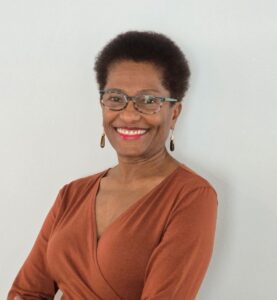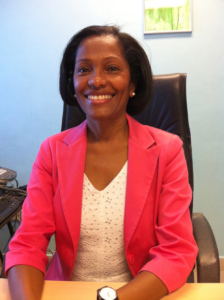Jacqueline Gautier
Credentials
Humanitarian Cause
Healthcare and Food Security, Access to Healthcare, Provision of Medical Services, Emergency Response, Supporting communities in climate-vulnerable regions
Impact Location
Haiti
Occupation
Medical Professional / Executive Director of Hôpital Saint Damien nos Petits Frères et Soeurs
Photo Gallery
About
Dr. Jacqueline Gautier is a seasoned global health consultant specializing in maternal and child health, hospital administration, infectious diseases, and vaccination. In 2024, she completed a one-year assignment as the Learning and Development Manager for Pediatric Training at MSF Belgium Academy, sharing her expertise with clinicians in Sierra Leone.
From 1993 to 2023, Dr. Gautier played a pivotal role at St. Damien Hospital in Tabarre, a district of Haiti’s capital, Port-au-Prince. The hospital, which specializes in pediatric care and maternal health, became a cornerstone of the community, with Dr. Gautier being considered its heart and soul. She led the transformation of the facility from an HIV/AIDS hospice into a 200-bed referral hospital, focusing on maternal and child care, including pediatric subspecialties.
Dr. Gautier’s journey with the hospital began in 1993, when she was appointed to a small children’s hospice in Tabarre. Over time, the hospice evolved into a children’s hospital, but it struggled to accommodate the growing number of patients in need of care.
Her dream of building a new, fully equipped children’s hospital was unwavering, even in the face of political instability and challenges like an international embargo that made importing necessary equipment nearly impossible. By 2006, a former hotel was remodeled as a new building for the St. Damien Children’s Hospital with 213 beds, fully equipped to treat children with oncological and infectious diseases and AIDS.
“Over many years of work, we set a certain procedure: first we took the kids in critical condition, then those from the waiting list, and then as many as we could fit. We also took the families’ social situation into account.”
Political crises and conflicts, disease outbreaks and natural disasters plague the Caribbean Island republic on a regular basis. In the aftermath of the catastrophic 2010 earthquake, which claimed over 200,000 lives and left millions displaced, Dr. Gautier faced personal tragedy as well. Her husband died in the quake, and she was injured. Yet, she immediately returned to the hospital after recovering, where plenty of work awaited: soon after the earthquake, a cholera epidemic swept through the country. Dr. Gautier pushed for a special ward to be opened for cholera patients, and she led efforts to standardize procedures for fighting the disease despite the collapsed healthcare system.
“I remember back in 1988, when Charles Aznavour was already a rather well-known French singer, he turned the world’s attention to the earthquake in Armenia. Generosity and kindness are humans’ natural qualities. We see a lot of such behavior during the earthquakes. It’s not necessarily help from the outside. People who are neighbors also help each other. They are still scared, they are still shocked, but they share their shelters, food and necessities with each other,” Dr. Gautier reflects.
As a female doctor in a top management role, Dr. Gautier’s presence in Haiti was exceptional, particularly during a time when many professionals were leaving the country. Although a medical license she earned in 1981 would have allowed her to practice in the United States, Dr. Gautier chose to stay in Haiti. “Back in 1994, life in Haiti was practically impossible. One gallon of gasoline cost $20, and there were no trade relations with other countries because we were under embargo. Back then I would think: ‘What am I doing here?’ I could’ve moved to another place, but I don’t regret staying,” she admits.
The hospital had long been a part of Dr. Gautier’s life. Her mother, a nurse at a small local hospital, was a major influence on her. “There was only one physician and one nurse in that hospital,” she recalls. “This life inspired me. Every time I entered our hospital, I thought of my mother, the way she would walk into the clinic when I was small.”
Currently, Dr. Gautier serves as the Volunteer President of the Haitian National Technical Independent Group in Immunization. In this role, she leads a team of experts that provides crucial immunization recommendations to Haiti’s Ministry of Health. She has also been teaching pediatrics for 17 years at the State University of Medicine in Haiti.
Her vast experience and dedication to healthcare reflect her deep commitment to improving access to health services for women and children in vulnerable situations. Dr. Gautier sums up her philosophy: “I once read that kindness is the essential element that will save the world from all this consumerism and violence. We should encourage kindness. We need to have a critical mass of kind people. This is why I think that support from kind people will make our world better. What goes around, comes around: if you serve people, you’ll be rewarded.”
The information on this page was last updated on 02/18/2025 and was provided by the Luminary.



